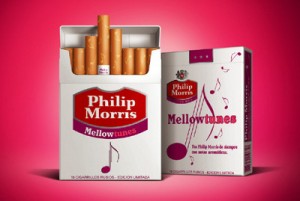It’s a fairly consistent thing that I get messages asking about the morality or ethics of investing in a certain type of company. Right now, there is a mail bag response I’m working on that deals with this topic. We’ve also talked about the fact that the Bri Institute thinks Jesus hates my portfolio. Though, if they are right in their summation of His priorities, Jesus sounds more like a crotchety old octogenarian who sucks on butterscotch candies and yells at kids to get off his lawn. I have a hard time reconciling that image with a guy who hung out with prostitutes, tax collectors, and a group of subversives who were trying to undermine the foundations of the Roman government.
Yesterday, the topic of moral or ethical investing hit home. I was standing in my parents’ factory, having a conversation with my mother and grandmother. We talked for a few hours, and at one point, investments entered the conversation. We were discussing the morality of investing in certain types of firms, how, for example, it is virtually impossible to own an index fund that doesn’t in some way, shape, or form distribute or profit from adult materials being a prime case. That has important ethical implications for people of strong religious conviction.

When my mom became upset at the idea of owning alcohol distilleries, I reminded her that the first miracle performed by Jesus Christ in the Bible was turning water into wine. He branched out and diversified from carpentry into distilling so she needed to take it up with Him if she has a problem with the industry. I'm just humbly following in his example. Of course, I can't hope to match His profit margins. He had no cost of goods sold, after all.
I mentioned that for every $8 in assets my parents held in their primary retirement funds allocated to publicly traded securities, $1 or more of their money was invested in alcohol and tobacco stocks, including beer, hard liquor, cigarettes, and cigars. Whenever someone pours a shot of Johnny Walker or lights up a Marlboro, my parents are getting part of the profit. It works its way back to tax-advantaged retirement plans and trusts, where it piles up, along with the fresh deposits taken from profits at their operating company, waiting to get reinvested into more ownership of great businesses. The other $7 out of every $8 in that part of the portfolio are mostly split among energy (mostly oil and natural gas), banks, pharmaceuticals, and consumer staples.
[mainbodyad]She started quizzing me. I kidded her a bit and called her a tobacco baroness. All of those investments were originally funded by the savings from the company that she and my dad started in a garage decades ago. Then, they became their own center of gravity, expanded, and grew. To paraphrase, I explained, “When we go on vacation, buy a car, refurnish a room, or give to charity, where do you think the money originates? You’ve made a lot over the past few years from alcohol and tobacco. That is where the value was, so that is what you own. It is a fair bet that by the time you retire, at least 12¢ to 15¢ of every $1 you have in your portfolio external of any proceeds from the sale or ownership of the private operating companies will have come from those types of businesses.”
That didn’t go over well. She doesn’t like the idea of cashing dividend checks from firms that sell a product that isn’t good for your health. Coffee, cookies, insurance, jewelry, electricity, water, silver mines, freight shipping, publishers, and soft drinks are fine. Whiskey and tobacco leaves are not, apparently.
Ultimately, I imagine I will prevail and the stocks will stay in the retirement funds. I reminded my mom that the first miracle performed by Jesus Christ was turning water into wine. He branched out and diversified from carpentry into distilling so she needed to take it up with Him if she has a problem with the industry. I’m just humbly following in his example. Of course, I can’t hope to match His profit margins. He had no cost of goods sold, after all.
Is It Rational to Avoid Investing in Businesses for Reasons You Can’t Fully Articulate?
On one hand, I understand the aversion to certain types of investments. Though it may seem irrational to others, I am not particularly fond of investing in shares of defense companies that manufacture weapons to kill people in wars. I understand the necessity of these industries, especially when someone like Hitler or Stalin comes onto the scene. Still, the idea that I had an ownership stake, no matter how small, in a firm that rings the cash register every time a grenade is thrown or a missile is launched makes me uneasy. It’s not my cup of tea. I don’t want to make money that way.
 On the other hand, I have few moral qualms about owning a company that sells a perfectly legal product to consenting adults, especially when local, state, and federal governments use that very industry as a tax piggy bank to fund schools and other projects. For me, alcohol and tobacco fall into that realm. I’ve used alcohol stocks as case studies on the site. We have discussed the legendary Reynolds Tobacco employee stock ownership plan. I’ve even mentioned picking up shares of Philip Morris from time to time.
On the other hand, I have few moral qualms about owning a company that sells a perfectly legal product to consenting adults, especially when local, state, and federal governments use that very industry as a tax piggy bank to fund schools and other projects. For me, alcohol and tobacco fall into that realm. I’ve used alcohol stocks as case studies on the site. We have discussed the legendary Reynolds Tobacco employee stock ownership plan. I’ve even mentioned picking up shares of Philip Morris from time to time.
It isn’t limited to those industries. My family is Christian. However:
- The Bible prohibits usury, yet my family owns shares of banks. When people send in their student loan payments, credit card payments, and mortgage payments, part of the interest finds its way to me in the form of dividends from my bank shares. No one is forced to borrow money. I have my shares because I was working around the clock, 20+ hour days early in life, while people I knew in school were off drinking at bars and going to parties. Sure, they complain about their debt now but we live with our choices.
- The Bible also prohibits mixing fibers, calling it an abomination, yet I have owned stock in companies including American Eagle Outfitters and Abercrombie & Fitch over the years. No one has moral objections to these types of securities, businesses, and products.
- Some Christians think that gambling is immoral so they wouldn’t want to invest in a casino, yet my grandmothers enjoy playing the slot machines more than almost anything else in the world, even though on an annual basis they spend less than they would if they went to dinner and a movie every week. For them, it is merely another form of entertainment. Aaron and my brother would like nothing more than for us to sell everything, buy a casino, and live in a penthouse in the hotel.
Where do you draw the line? For me, I am willing to invest in anything that I wouldn’t mind having printed on the front page of my hometown newspaper.
[mainbodyad]



